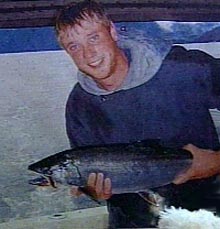| Sun | Mon | Tue | Wed | Thu | Fri | Sat |
| 1 | 2 | |||||
| 3 | 4 | 5 | 6 | 7 | 8 | 9 |
| 10 | 11 | 12 | 13 | 14 | 15 | 16 |
| 17 | 18 | 19 | 20 | 21 | 22 | 23 |
| 24 | 25 | 26 | 27 | 28 | 29 | 30 |
| 31 |
| Ian Bush case: no charges, no surprise |
Much has been said and written about the case of Ian Bush, the unarmed 22 year old who was killed by an RCMP officer in Houston, B.C. last October, so I'm reluctant to add more. However, no one can doubt that the RCMP officer received benefits that no ordinary citizen in the same position would have. Imagine anyone else intentionally shooting an unarmed person in the back of the head and not even being arrested, let alone charged! Anyone but a police officer asserting that he shot an unarmed man in self defence would be told, "tell it to the judge at your trial".
The decision not to subject the RCMP officer to the justice system is no surprise, just as it's no surprise that the police say that the video camera in the RCMP office where the shooting occurred wasn't working, just as it's no surprise that it took the RCMP many months to investigate such a straightforward matter, just as it will be no surprise to learn eventually that the RCMP officer wasn't interviewed by RCMP investigators at the scene but rather had an opportunity to prepare a typewritten statement at his leisure with the help of his lawyer.

A coroner's inquest, which is a fact-finding, not a fault-finding exercise, could have and should have been held months ago. However, the Chief Coroner, former RCMP Deputy Superintendent Terry Smith, has an unwritten policy that inquests are deferred until after criminal investigations have been completed. This is in keeping with the BC Coroners Service's deferential attitude to the police, an attitude that extends to allowing the police to investigate their own, to take as long as they want doing it and to ensure that the officer under investigation gets every opportunity to create a plausible-sounding excuse.
The families of victims just want a justice system that treats everybody equally, that operates without fear or favour. Surely they are entitled to that.
Here are two simple suggestions:
1) Establish an independent agency to investigate cases of police-involved death or serious injury (like Ontario's SIU, and as a BC coroner's jury recommended in 2004);
2) Hold coroner's inquests into police-involved deaths right away (like other jurisdictions-this week, a Wisconsin jury conducted an inquest into the death of Nicholas Cyrus, 29, who died after being Tasered by police on July 9, 2006)
The BC system needs reform, and it needs it now, before this province becomes a laughingstock.